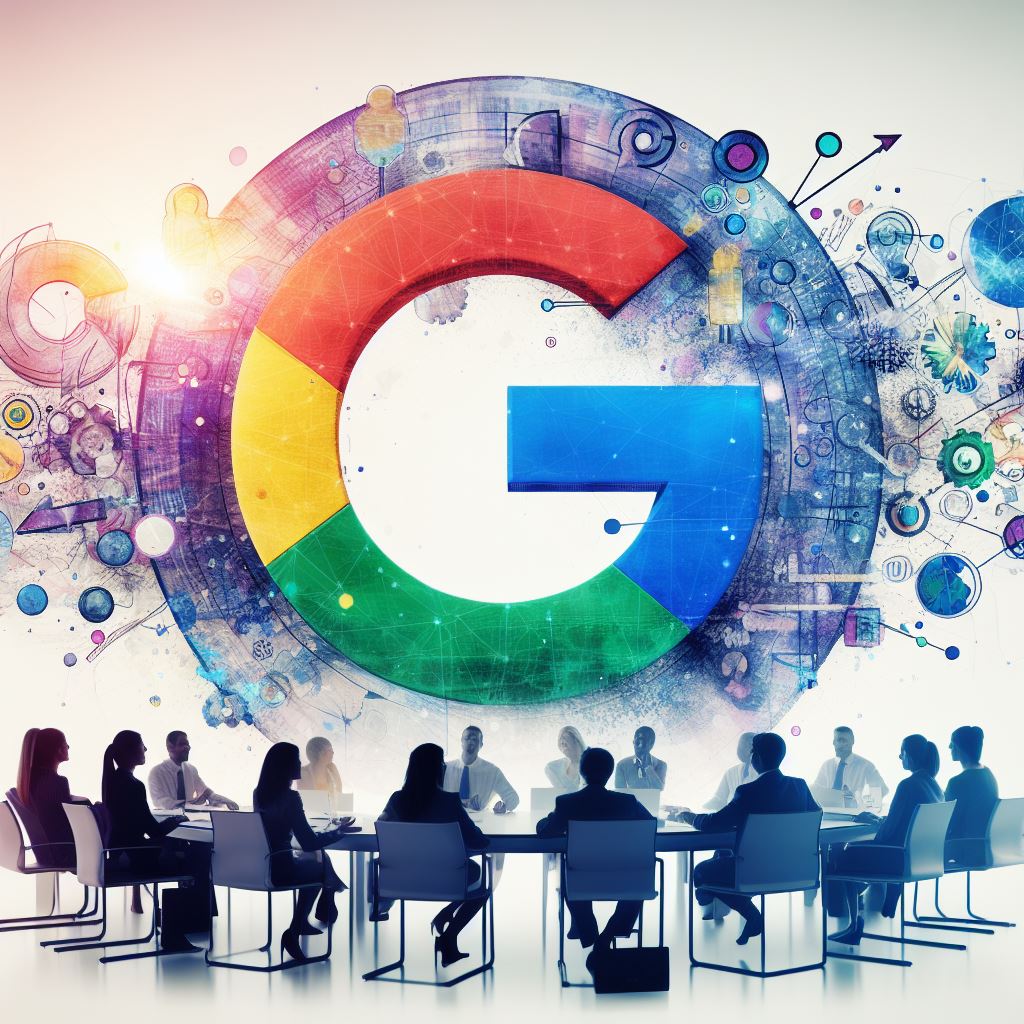Article Outline%22%20transform%3D%22translate(.6%20.6)%20scale(1.29297)%22%20fill-opacity%3D%22.5%22%3E%3Cellipse%20fill%3D%22%23164e8b%22%20cx%3D%22135%22%20cy%3D%22158%22%20rx%3D%2256%22%20ry%3D%2248%22%2F%3E%3Cellipse%20fill%3D%22%23fffff5%22%20rx%3D%221%22%20ry%3D%221%22%20transform%3D%22matrix(25.64041%2035.32221%20-129.5566%2094.0452%202%20120)%22%2F%3E%3Cellipse%20fill%3D%22%23faf7f3%22%20rx%3D%221%22%20ry%3D%221%22%20transform%3D%22matrix(15.4278%20-22.19768%2094.76757%2065.86517%20212.7%2093.3)%22%2F%3E%3C%2Fg%3E%3C%2Fsvg%3E)
- Introduction
- Google’s Commitment to Protecting AI Users
- The Products Covered by Google’s Legal Protection
- Google’s Two-Pronged Strategy for Intellectual Property Indemnification
- The Significance of Google’s Move
- Implications for AI Developers
- The Broader Context of AI Copyright Accusations
- The Impact on Competing Companies
- Conclusion
- FAQs
Google to Protect Users in AI Copyright Accusations
In the era of rapidly evolving artificial intelligence (AI), intellectual property and copyright issues have become a hot topic. As AI systems generate content autonomously, there’s a growing concern about the potential copyright infringement associated with these systems. In response to these concerns, Google has taken a significant step by committing to protect users of generative AI systems within its Google Cloud and Workspace platforms when they face allegations of intellectual property infringement.
Google’s Commitment to Protecting AI Users
Google’s commitment to safeguard users of generative AI systems is a proactive response to the challenges presented by the widespread use of AI. In a recent blog post, Google made it clear that customers utilizing products integrated with generative AI capabilities will receive legal protection. This commitment aligns Google with other tech giants like Microsoft and Adobe, which have also made similar assurances.
The Products Covered by Google’s Legal Protection
To ensure that users are fully aware of the scope of their protection, Google explicitly outlined seven products that fall under this legal shield. These products include:
- Duet AI in Workspace, covering text and image generation in Google Docs, Gmail, Google Slides, and Google Meet.
- Duet AI in Google Cloud.
- Vertex AI Search.
- Vertex AI Conversation.
- Vertex AI Text Embedding API.
- Visual Captioning on Vertex AI.
- Codey APIs.
Notably, Google’s Bard search tool is not included in this list. Nevertheless, Google’s commitment states that if users are challenged on copyright grounds, the company will assume responsibility for the potential legal risks involved.
Google’s Two-Pronged Strategy for Intellectual Property Indemnification
Google has introduced a pioneering two-pronged strategy for intellectual property indemnification. Under this initiative, Google extends its protection to encompass both the training data and the outcomes generated from its foundational models. This unique approach provides a comprehensive umbrella of protection, ensuring that users have peace of mind when it comes to using AI systems integrated with Google’s technology.
The Significance of Google’s Move
Google’s commitment to protecting AI users marks a pivotal moment in the AI landscape. As AI technology continues to evolve and gain prominence, the need for legal safeguards becomes increasingly apparent. Google’s dedication to addressing copyright issues associated with generative AI is a clear demonstration of its commitment to responsible AI development.
Implications for AI Developers
This move by Google is likely to have a ripple effect on the AI development community. Developers and companies utilizing generative AI technologies will be encouraged by Google’s proactive stance on user protection. This could pave the way for more responsible and ethical AI development practices across the industry.
The Broader Context of AI Copyright Accusations
AI copyright accusations are not isolated incidents. With AI being integrated into various applications and systems, the potential for copyright disputes is on the rise. Google’s decision to protect its users sends a strong message to the tech industry that responsible AI development is not only a moral imperative but also a legal necessity.
The Impact on Competing Companies
Google’s commitment places it alongside other industry leaders like Microsoft and Adobe, who have also extended legal protection to their users. This alignment indicates a growing consensus within the tech industry that AI users must be shielded from legal ramifications when using generative AI systems. Competing companies will likely follow suit, creating a more user-centric environment for AI development.
Conclusion
Google’s commitment to protecting users in AI copyright accusations is a significant step towards responsible and ethical AI development. By offering legal protection to users of generative AI systems, Google has set a standard that other tech companies may follow. This move not only safeguards users but also encourages the AI community to prioritize ethical practices.
FAQs
1. What is generative AI, and why is it causing copyright concerns? Generative AI refers to AI systems that can autonomously generate content, such as text and images. Copyright concerns arise because the generated content may infringe on existing intellectual property rights.
2. What products are covered by Google’s legal protection? Google’s legal protection covers seven products, including Duet AI in Workspace, Vertex AI Search, and others integrated with generative AI capabilities.
3. Why isn’t Google’s Bard search tool included in the list of protected products? Google’s Bard search tool is not included in the list, but Google will assume responsibility for legal risks if users of this tool face copyright challenges.
4. How will Google protect both training data and outcomes in its two-pronged strategy? Google’s strategy extends legal protection to both the data used to train AI models and the outcomes generated by those models, ensuring comprehensive user protection.
5. What impact will Google’s commitment have on the AI development community? Google’s commitment is likely to encourage responsible AI development practices and may prompt other companies to follow suit in protecting their users from copyright challenges.
References:
https://alitech.io/blog/two-months-after-launching-for-ios-chatgpt-android/













